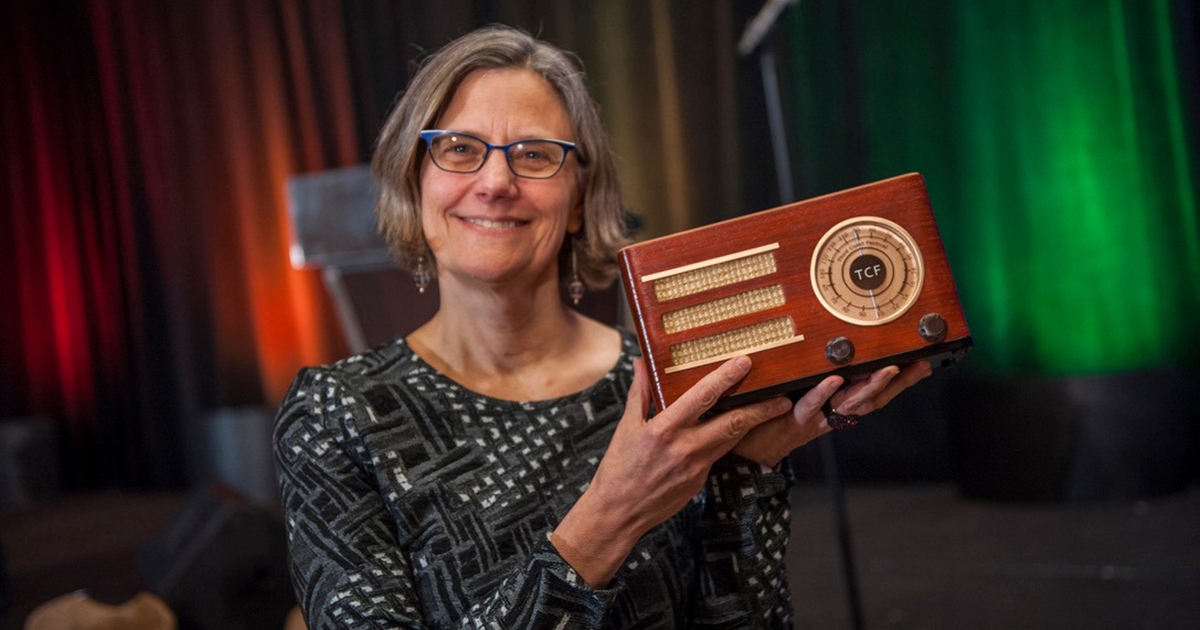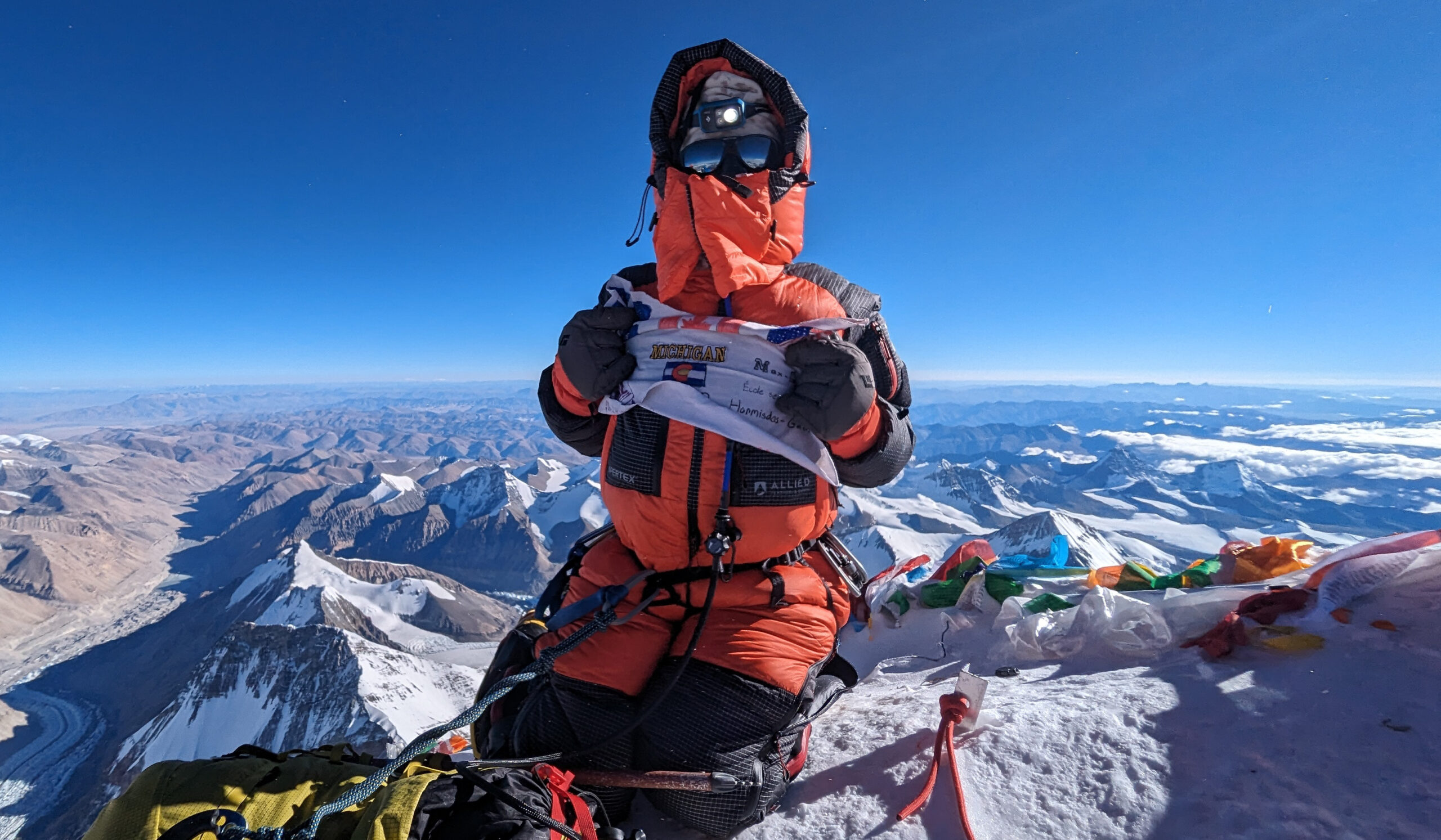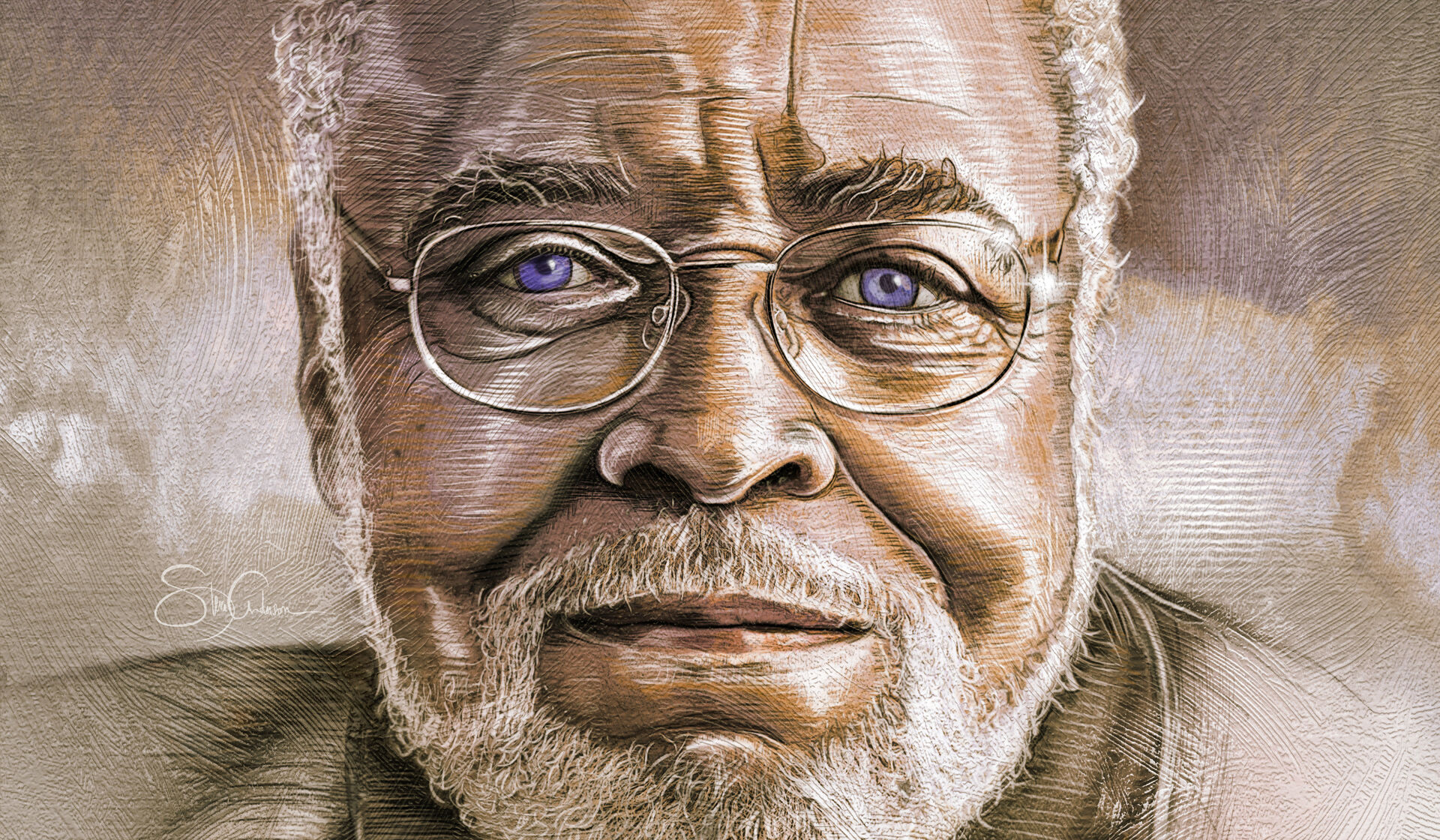Audio storytelling and podcasting have exploded in popularity over the last several years, and the person to thank is Johanna Zorn, ’79.
As the co-founder and, until recently, the executive director of the Chicago-based Third Coast International Audio Festival, Zorn is one of the top audio ringleaders and tastemakers in the field. Every fall since 2001, hundreds of audio producers, managers, editors, and enthusiasts from around the world have gathered in Chicago for a weekend to share pieces, present new techniques, and receive awards the festival deems “the Oscars of radio.”
“The audio medium is such an extraordinary medium for telling stories,” Zorn says. “Hearing the human voice reveals so much of a person’s life, whether it’s the tone of the voice, the pauses, even the clearing of the throat.”
Zorn’s interest in audio was sparked as a young girl in Pittsburgh, listening to the radio with her dad. She cultivated that interest at the start of her sophomore year at U-M, when she joined the staff of WCBN-FM, the free-form, student-run radio station. With NPR still in its first years of existence, the country was just starting to wake up to the possibilities of smartly produced radio.
“I felt like I found my little place within this really large school,” Zorn says of her time at WCBN. Catching the wave of the environmentalist movement, she created a public affairs program called “Soft Solutions About Alternative Energy Sources,” which spotlighted new discoveries in energy and complemented her major in environmental communications.
After U-M, Zorn headed to Chicago, where she volunteered at WBEZ for two years, waiting tables to make ends meet, before finally being offered a producer job. She met her husband, Chicago Tribune columnist Eric Zorn, ’80, when he was a guest judge on a teen-comedy radio contest she organized; their first date was at a Michigan-Northwestern basketball game.
Chicago was an audio trailblazing place in the 1990s, as the stomping grounds for future radio legends like “This American Life.” During this period, documentary film was also becoming a larger cultural force thanks to the Sundance Film Festival. Seeing this groundswell of creative energy, Zorn pitched WBEZ on creating a “Sundance for audio,” a gathering space for audio storytellers to discuss their craft and listen to each other’s work. Third Coast was born.
The first Third Coast was in October 2001, six weeks after 9/11. Though she worried at first that few people would come, she also “realized we needed to come together even more after 9/11. This was a brand new medium, and we needed to discuss the role of audio in these difficult times.”
Some 200 people attended, including a group of producers who had started working on a “Sonic Memorial” of 9/11—spearheaded by the longtime radio duo The Kitchen Sisters. The festival allowed them to further their collaboration. Zorn saw the “sense of urgency” at the conference, and the spark of creativity brought out by the tragedy.
“There was a real feeling that we were on the cutting edge of something,” Zorn recalls of that first festival. “We said, ‘This is a field that needs to grow.’ And I think people heard that and followed suit.”
Since 2001, audio has indeed grown by leaps and bounds. Podcasting freed the medium from the limitations of terrestrial radio and opened up big sponsorship money. Now, companies like Amazon (which owns Audible) and the New York Times (which produces “The Daily” podcast, among others) also make appearances at Third Coast. Featured speakers have included Jad Abumrad of “Radiolab” and Glynn Washington, ’92, JD’96, of “Snap Judgment.”
The organization’s mission has expanded, as well, to encourage more underrepresented voices in the industry. A new radio-residency program sends an annual cohort of audio-makers from diverse backgrounds to an artist’s colony in nearby Lake Forest, Illinois. Radio residents have included Neena Pathak, a producer at The New York Times, and Lakeidra Chavis, a fellow at the investigative nonprofit ProPublica Illinois.
After 19 years at the festival’s helm—it took a year to launch Third Coast—Zorn stepped down from her lead role this past September. She plans to work as a consultant in the ever-changing audio storytelling space and see where her passions take her next.
“Third Coast succeeded in its original mission, to raise the profile of audio storytelling internationally,” says Zorn. “I am excited to see what the next chapter looks like for the festival, given the robust field of podcasting and the plethora of voices and well-crafted work that exists.”
Zorn’s Favorite Podcasts
During her valedictory speech to Third Coast last fall, Zorn spotlighted some of the audio pieces she’s taken the greatest inspiration from throughout her career. Here are the sounds that shaped her.
Ghetto Life 101
In 1993, public radio producer David Isay gave tape recorders to LeAlan Jones and Lloyd Newman, two African American teenagers growing up on Chicago’s South Side. Their resulting footage sparked this award-winning piece, and the beginning of the innovative, long-running “Radio Diaries” program.
9/11 The Sonic Memorial Project
Launched by top public radio producers, including The Kitchen Sisters, in the immediate aftermath of 9/11, The Sonic Memorial Project collected voicemails and ambient sounds from New Yorkers trying to process the loss of the World Trade Center. More than 1,000 contributions have been recorded.
God + The Gays
A recent Third Coast award winner, this autobiographical piece from the podcast “The Heart” follows first-time radio producer Phoebe Wang as she interviews Christian former friends to figure out whether they can have a meaningful relationship now that she has come out as a lesbian. During her acceptance speech, Wang made a public call for more top figures in the radio field to seek out diverse voices.
Andrew Lapin, ’11, is a freelance writer and film critic for outlets including NPR, Vulture, and The Economist. He has written about public broadcasting for the trade paper Current since 2012.





